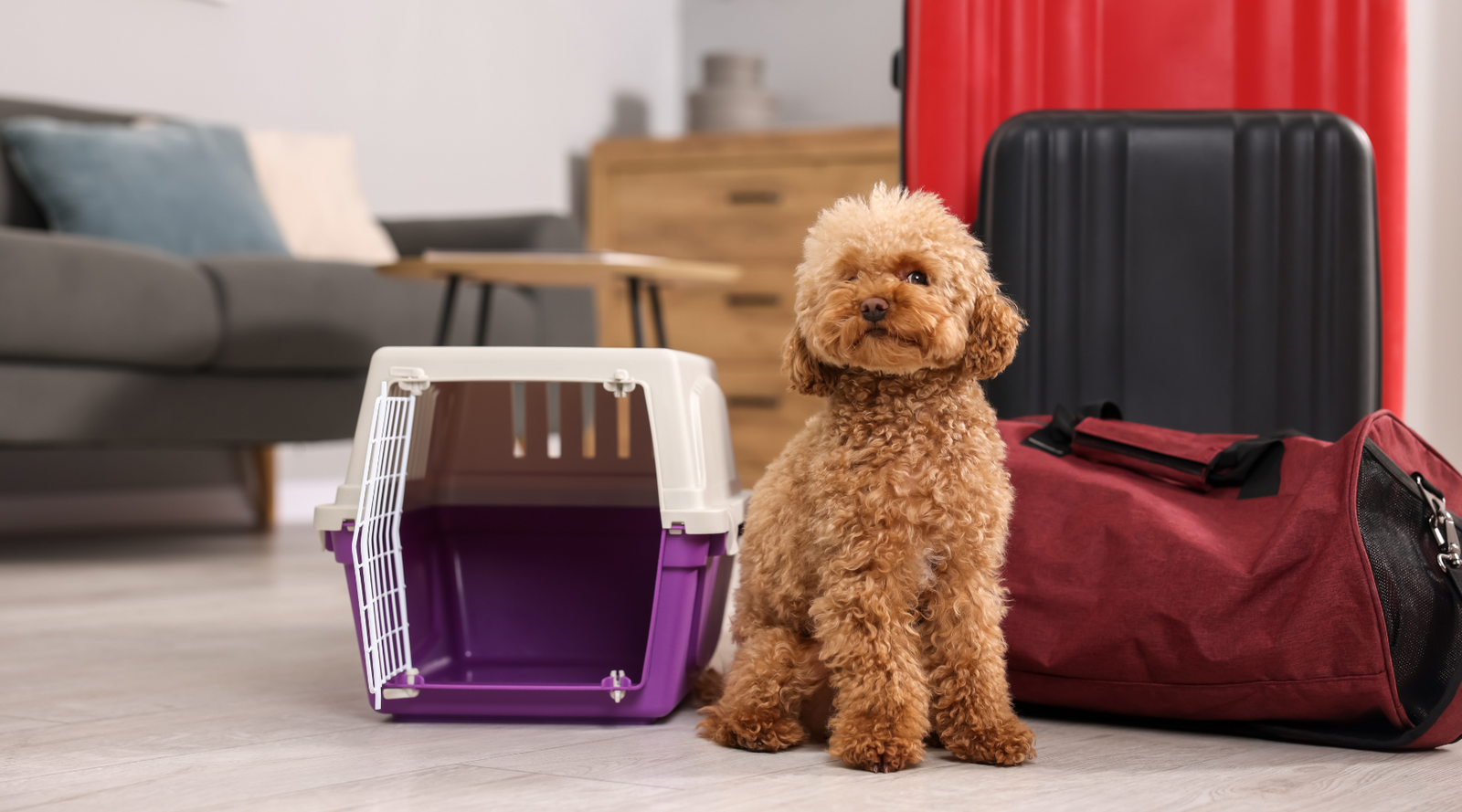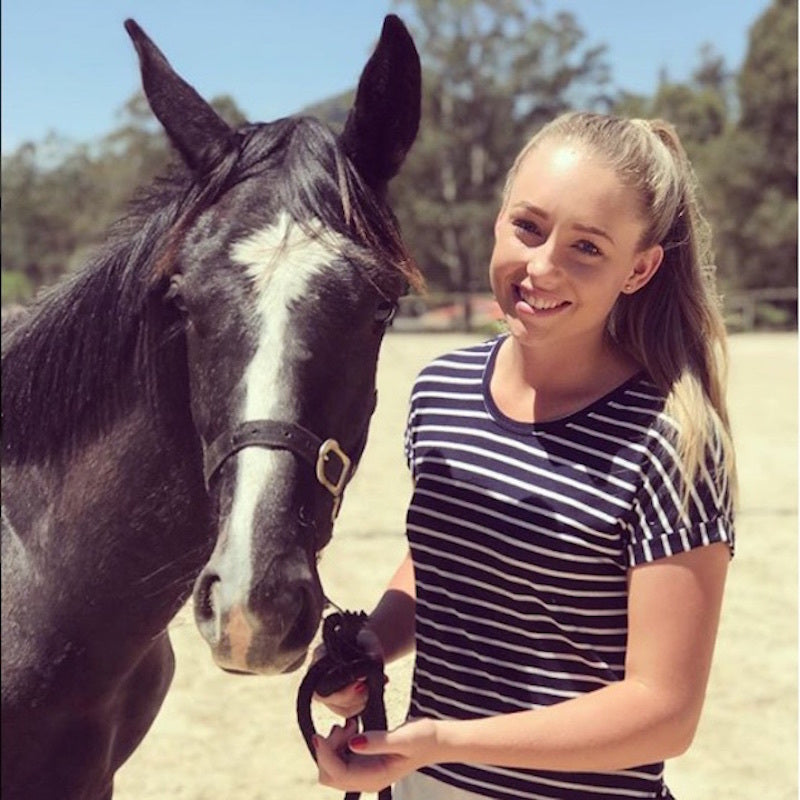Horse & Rider
Get Holiday Ready: Six Essential Remedies To Care For Dogs & Cats
by Fiona Lane December 08, 2025

Holidays are a time to relax, but for your pets they can mean unfamiliar people, changes to routine, new environments, and even exposure to bugs they don’t normally encounter. Whether your dog or cat is staying in a boarding kennel or cattery, travelling with you, or remaining at home with a carer, a little preparation can help them feel calm, secure, and supported. In this blog, we explore the most common holiday-related challenges for pets including kennel cough, cat flu, separation anxiety, and travel worries, and share natural ways to help your pets cope.
Key Highlights
- Changes in routine, environment and caregivers can trigger stress, separation anxiety or behavioural changes in both dogs and cats over the holidays.
- Boarding kennels and catteries increase exposure to contagious conditions such as kennel cough in dogs and cat flu in cats.
- Some pets experience motion sickness, anxiety or travel-related distress when travelling by car or plane.
- Even when staying at home, pets may feel unsettled by unfamiliar carers or house sitters, or being left alone for longer periods.
- Preparing your pets with immune, anxiety and travel support remedies can make holiday transitions easier and more comfortable.
- Hippo Health offers natural remedies such as Immune Plus – Pets, Feeling Lonely, Cough KC, Cat Flu Plus, BioPet Relax and BioPet Travel Well to support pets experiencing anxiety due to routine change or travel, motion sickness or who come home from care with minor respiratory symptoms.
Understanding the most common challenges - from separation anxiety and motion sickness to kennel cough and cat flu - means you can put the right support in place before any worries arise. With a few simple steps, you can help your dog or cat feel calm, confident and well cared for while you’re away.
Boarding Kennel & Cattery Stays
Even for pets familiar with boarding kennels or catteries, being separated from their favourite places and humans can be a challenge. Unfamiliar sights, sounds and smells, coupled with the presence of other animals, can make this experience stressful.
Boosting Immunity Before They Go
If you’re planning a kennel or cattery stay for your pet, you could consider using our Immune Plus – Pets to help boost their immunity. We recommend dosing twice a day in the week leading up to their stay.
Separation Anxiety
Some pets need help adjusting to being without you or being in a new environment. Our Feeling Lonely remedy supports pets experiencing separation anxiety and can be used for longer stays at a kennel or cattery, or for shorter periods such as a vet stay or being home alone for the day. Dosing via the water bowl or on food makes it easy for the team at the kennel or cattery to administer – even to cats!
Kennel Cough & Cat Flu
Kennel cough is common, highly contagious upper respiratory infection that can spread quickly through kennels or doggy daycares. Symptoms include a dry, hacking cough, loss of appetite, lethargy and sometimes a nasal discharge. While not life threatening, kennel cough can be distressing. Our Cough KC remedy supports a normal immune response to these symptoms, helping dogs recover naturally.
For cats, a cattery stay can lead to cat flu - an upper respiratory infection with symptoms such as sneezing, runny nose, watery eyes, loss of appetite and a fever. Cat Flu Plus supports a healthy immune response, providing some relief for cats experiencing these symptoms.
Leaving Your Dog or Cat At Home
Staying at home means your pet is surrounded by their favourite smells and toys, but they’ll still miss their favourite humans! Even with a caring pet feeder or house sitter, your pet will experience a change in routine that can leave them feeling anxious, especially if they are used to someone being home most of the time.
General Anxiety
For pets who might feel anxious about a new carer or routine, there’s our BioPet Relax remedy – an all-round calmative that can help to take the edge off. We recommend dosing starts about a week before you plan to leave your pet at home and continues until you return. As dosing is via the water bowl or on food, this remedy is easy for your house sitter or pet feeder to administer.
Separation Anxiety
If you’re worried your pet will pine while you are away, try dosing with our Feeling Lonely remedy. It’s formulated to support cats and dogs who are experiencing feelings of separation, so it’s perfect for pets missing their humans or coping with change.
Travelling with Your Dog or Cat
While some pets enjoy travel, others find it stressful. Motion sickness or anxiety can very quickly take the fun out of travel for everyone!
Motion Sickness
Motion sickness is often linked to the inner ear and can present differently in dogs and cats. Dogs may drool excessively, lick their lips, whine or be restless, while cats can be lethargic and vomit or experience diarrhoea. If your pet is prone to motion sickness try using our BioPet Travel Well. Dose before departure then provide top up doses as needed, especially before windy roads or long stretches of travel.
Travel Anxiety
Sometimes, travel-related distress stems from anxiety rather than physical discomfort. Signs of travel anxiety include resistance to entering carriers or vehicles, excessive vocalisation, panting or soiling themselves. Dosing with BioPet Travel Well as soon as your pet realises they will be travelling, then again just before departure can help to ease their nerves and make the journey less stressful for everyone. You can also provide top up doses during the trip if anxiety continues. Regular use may even help your pet associate travel with positive experiences, reducing anxiety over time.
Fun fact: we make a version of this remedy for people too!
Oral Dosing Tips
All our remedies are given orally, making it easy for kennel or cattery staff, house sitters or pet feeders to dose - even for cats! Adding a remedy to the water bowl is the simplest method, for most remedies, however for Travel Well top ups you may need to dose directly into the mouth or onto a favourite treat. You can read more dosing tips for dogs and cats here.
Final thoughts
With a little bit of preparation, your holiday can be stress-free for both you and your pet! Whether travelling together, staying home with a sitter, or heading to a kennel or cattery, remedies like BioPet Travel Well, Feeling Lonely, and Immune Plus – Pets can help your dog or cat feel calm, supported, and cared for while Cough KC and Cat Flu Plus can provide support for pets that come home feeling under the weather.

Homeopathic Practitioner | BA, Dip Ed, Dip Hom AH (Animal Health)
Fiona J. Lane
Fiona Lane is the Founder of Hippo Health and an accomplished Animal Homeopath. Driven by a passion for effective and affordable natural health, she has formulated the Hippo Health and BioPet ranges of innovative, non-toxic remedies. Fiona is dedicated to providing straightforward, trusted solutions that support the well-being of horses, pets, livestock and people.
General Disclaimer: Always follow dosing instructions. Our remedies are formulated to support the natural immune system of horses, pets, livestock, and people. We do not claim to treat, medicate, or cure any health conditions. If you are worried an animal may be in pain or suffering, please contact your veterinarian.




